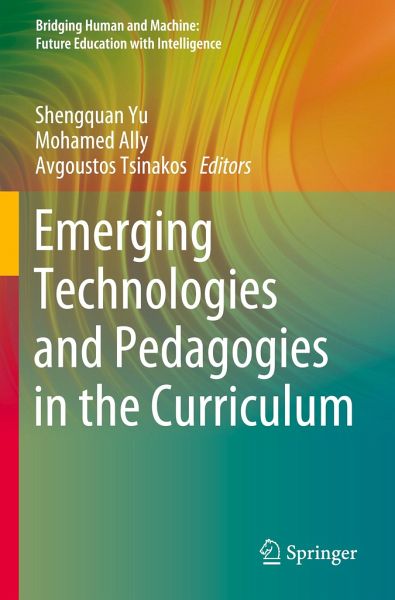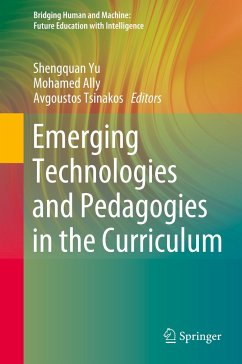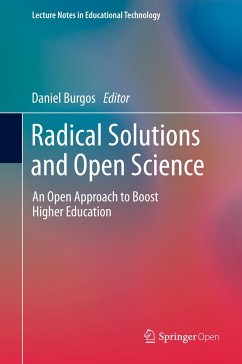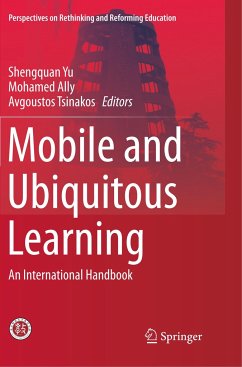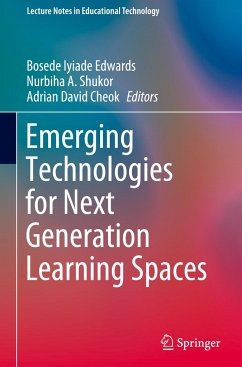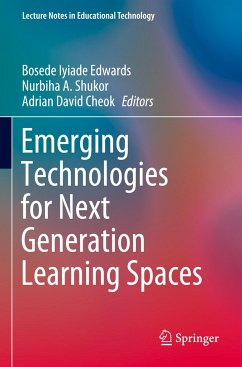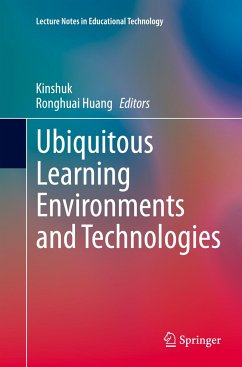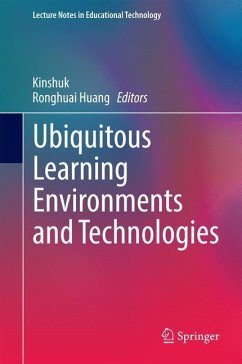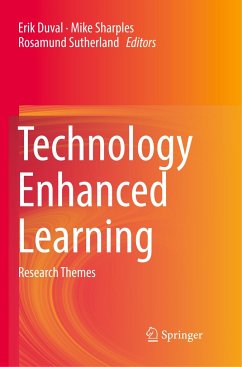Shengquan Yu is a professor, Executive Director of Advanced Innovation Center for Future Education at Beijing Normal University and Director of the Joint Laboratory for Mobile Learning, Ministry of Education-China Mobile Communications Corporation. His research interests include Artificial Intelligence in Education, Ubiquitous Learning, and Big Data in Education. Prof. Yu was funded by the National Program for New Century Excellent Talents in 2008. He is a fellow of China E-learning Standard Committee, consulting expert of 12th Five-Year Informationization Plan of Chinese Academy of Science, research fellow of China Educational Policy Research Institute, and expert committee member of Ten Year National Educational Technology Plan. He is an associate editor of IEEE Transactions on Learning Technologies. He is also a member of the expert committee of several Chinese academic journals. Prof. Yu has published more than 180 academic papers, 6 scholarly monographs. He has led more than50 research projects, and owns numerous patents in his field. His main achievements include the Smart Learning Partner Platform, the Learning Cell Platform (a new learning resources description and encapsulation mechanism and LCMS based on it), teaching innovation with ICT in K12 projects with over 300 participant schools involved and the "4A Learning Platform" with more than 1 million registered users. Dr. Mohamed Ally is Professor and Program Director of the Doctor in Education program at Athabasca University, Canada. He is a Commonwealth of Learning Chair in Emerging Technologies in Education and Training. He is also a Researcher at the Technology Enhanced Knowledge Research Institute, Athabasca University in Canada. Dr. Ally is serving on international committees to set standards on ICT in education and training, mobile learning, and artificial intelligence. He obtained his Ph.D. from the University of Alberta, Canada. His current areas of research includeuse of Fourth Industrial Revolution (4IR) technologies in education and training, mobile learning, e-learning, and distance education. Dr. Ally is a Past-President of the International Federation of Training and Development Organizations and is one of the Founding Directors of the International Association of Mobile Learning (IAmLearn) and the International Association of Blended Learning (IABL). He has recently edited 17 books on the use of emerging technologies in education. His book Mobile Learning: Transforming the Delivery of Education and Training won the Charles A. Wedemeyer Award in the United States for its significant contribution to distance education. He has published many papers in peer-reviewed journals, chapters in books, and delivered many speeches around the world. Dr. Tsinakos Avgoustos is a Professor and Director of Advanced Educational Technologies and Mobile Applications Lab in the Department of Computing Science at International Hellenic University in Greece. He also serves as Coordinator of Master of Distance Education in Greece, on behalf of Athabasca University of Canada since 2009. Part of his activities are shared among the following positions: Director of Long Life Leaning Institute of International Hellenic University Kavala's Branch Board Member of the Hellenic Foundation for Research and Innovation Director of Education for the Con-E-Ect" UNESCO Chair Greece, Adjacent Professor Athabasca University of Canada. Prof. Tsinakos was the Coordinator (or member of the Coordination Team) in more than 14 national/international projects on the topic of distance education (10 MEuros). He received the Golden Price of Education Leaders Awards 2019 for the Augmented Reality Platform ARTutor of his research Lab (AETMA). Additionally, he participated in more than 52 world/international/national conferences as invited speaker/presenter. His publication list includes four book chapters, more than 70 papers on the topic ofe-learning/mobile learning and of Augmented Reality and three books related to Mobile Learning.
